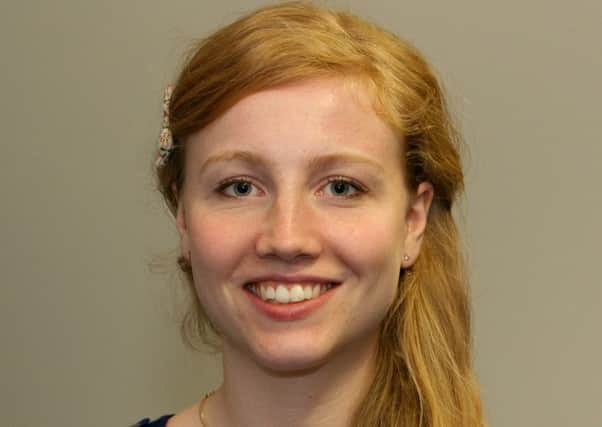Melody Redman: A Yorkshire junior doctor’s prescription for the NHS


This year I remember lots of tears: tears of joy from Mr Garry, a new father, as he lifted his new-born daughter shortly after her birth; tears from Mr Smith’s loved ones as he asked me to discuss the meaning of his cancer diagnosis with them; tears from Mrs Green’s family as they ran to find me to assess if she’d passed away.
I also remember those people who make the hard days that little better: the ward clerk who brought me biscuits and a drink knowing I had missed lunch and was exhausted; the nurse who checked how I was after we’d dealt with a patient who quickly deteriorated and passed away; the kind doctor who went out of his way to support me in my application process for the next stage of junior doctor training.
Advertisement
Hide AdAdvertisement
Hide AdIt would be amiss, however, if I painted an entirely rosy picture because 2015 has also brought major challenges. The time, energy and resources we invest into our work (which extends well beyond our rostered hours) inevitably has an effect on our lives outside of work. Over the last year I have seen some colleagues cry in the workplace, others leave the NHS, and, sadly, I have seen some suffer significant mental and physical illness related to their job.
Since the Conservatives won May’s general election, we have continued to hear the pledge for a seven-day NHS. Doctors agree that patients should receive the same high quality of care every day, but insist the priority has to be for urgent and emergency care. Resources are already tightly stretched, with no give left. More resources, and sustainable investment, are needed if we want to have the ability to have elective operations such as a hip replacement or varicose vein op, on a Saturday afternoon. These will need more staff and more (appropriately allocated) funding.
Doctors feel undermined and demoralised by the Health Secretary’s suggestion that we don’t work on evenings, nights or weekends.
The suggestion that the NHS does not currently provide seven-day care is often confusing for patients and the public, and exasperating for staff who work around the clock.
Advertisement
Hide AdAdvertisement
Hide AdThere has been a serious battle, which still faces uncertainty, as junior doctors were threatened with the imposition of a contract which was not safe for patients, not fair for doctors and not sustainable for the NHS. It’s not just doctors who are facing an uncertain future.
The Government has cut the bursaries for nurses in training, which the Royal College of Nursing says is already having a negative impact on people who were considering a career in nursing.
Our NHS workforce is already at breaking point; we have recruitment and retention problems, unfilled rotas, and stressed healthcare workers. If this situation worsens, the service will not be able to cope.
This Christmas, along with colleagues all over the country, I’m working 12.5 hour night shifts.
Advertisement
Hide AdAdvertisement
Hide AdThe NHS never sleeps. I’m working on New Year’s Eve, too. As I officially finish my shift at 8.30am on New Year’s Day, I’ll be hoping that this year is a good year for the NHS.
I spent some time this year supporting the British Medical Association’s campaign for a commitment for ‘#NoMoreGames’ to be played with our NHS.
No more games with the public’s health, no more games with NHS funding, and no more games with who’s providing healthcare. What I truly believe is in the best interest of our population is a publicly-funded, publicly-provided healthcare system, which all political parties work to improve.
At the moment, the system we have is incredibly stretched, and I seriously fear for the future of the NHS if we don’t work on the issues in a sustainable manner.
Advertisement
Hide AdAdvertisement
Hide AdThe National Audit Office warned recently that money problems in the NHS in England are becoming “endemic” and despite the extra money promised by Government, there is no guarantee the service will get back on track.
The Government must acknowledge that the NHS is desperate for sustainable resourcing and investment and work with doctors, and other healthcare staff to properly understand and address the current challenges our healthcare service is facing.
It is ironic that as doctors, our concerns about the condition, prognosis and treatment of the NHS are often not taken into full consideration.
A vast challenge lies ahead; let’s put in the effort now to address it before it’s too late. I wish you, and our NHS staff, a happy new year. Long may our NHS continue.
Melody Redman is a junior doctor in North Yorkshire. Names have been changed to protect the identity of patients.